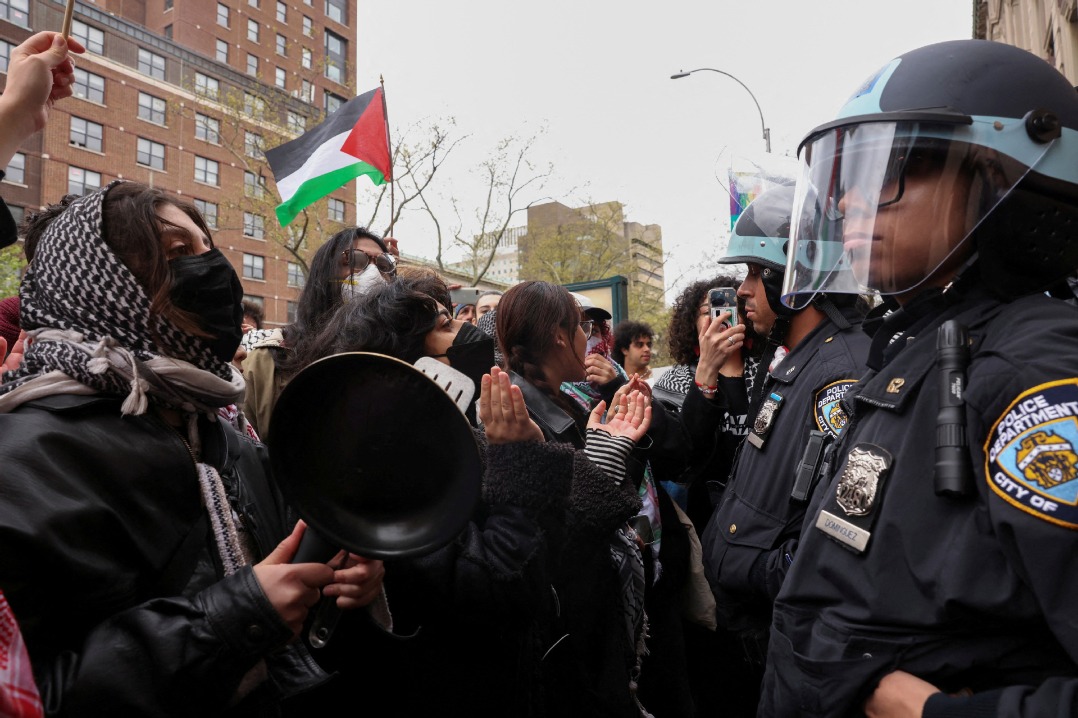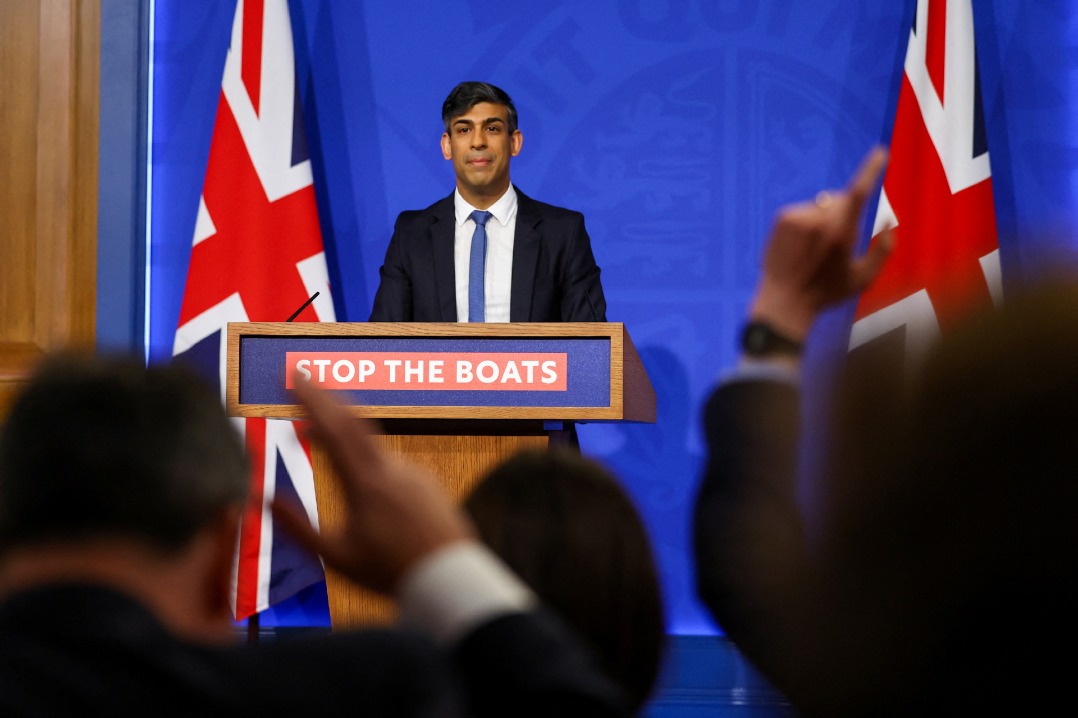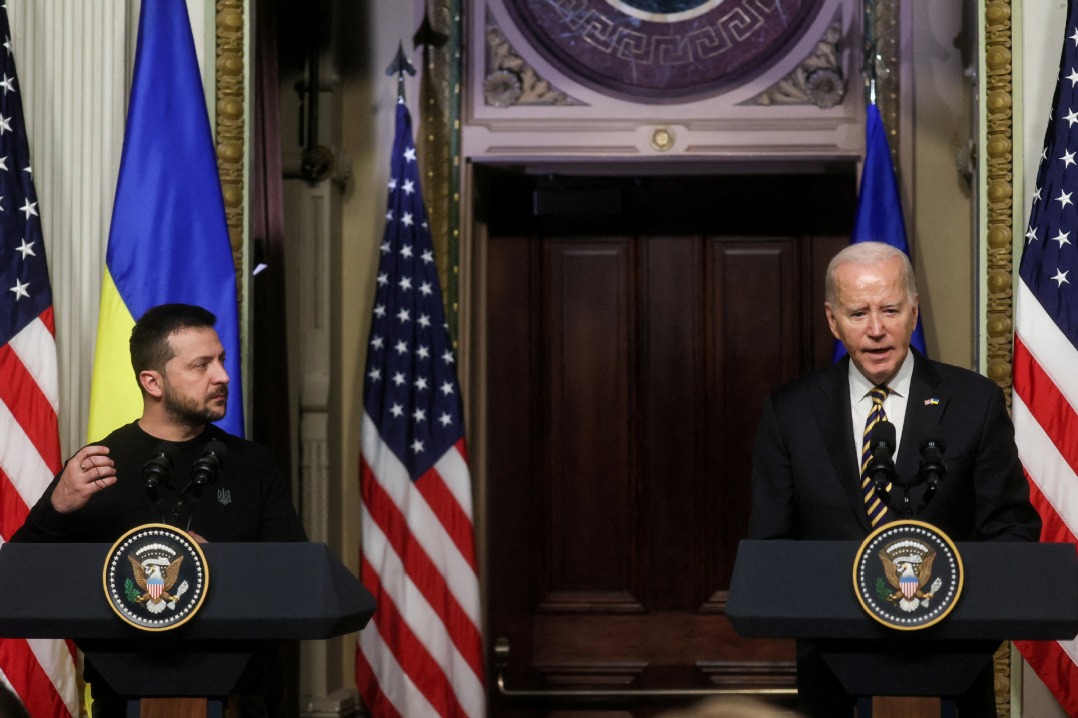Blasts a blow to Sri Lanka tourism
By ARUNAVA DAS | China Daily Global | Updated: 2019-04-25 10:54

Many countries issue travel advisories asking citizens not to travel to the island nation
Tourism appears to be the latest victim of the terrorist bombings in Sri Lanka as scores of foreign tourists fled the island nation which relies heavily on tourism. But insiders are hoping for a quick recovery.
The panic-stricken holidaymakers cut short their vacation after more than 350 people, including at least 39 foreign nationals from countries such as China, India, Portugal, Turkey, the United Kingdom and the United States, were killed in a string of eight bomb explosions at churches and luxury hotels in Colombo, the east coast city of Batticaloa, and the west coast city of Negombo on Easter Sunday.
The number of "fleeing foreign nationals" could run into the thousands, according to estimates. Countries such as the US, Canada and the UK have put out advisories warning their citizens against traveling to Sri Lanka, leading to cancellations of bookings by tourists. Other countries too issued similar warnings to their citizens.
Tourism constitutes 5 percent of the country's GDP, and its third largest and fastest-growing source of foreign exchange. Before the bombings, the Sri Lankan government had announced it planned to attract 3 million tourists and generate $4 billion in tourism receipts this year.
However, these objectives may have been dealt a fatal blow. Pranob Sarkar, president of the Indian Association of Tour Operators, said requests for cancellations from Indian tourists are rising. "We are canceling trips on behalf of our clients," Sarkar said.
India is the largest source of tourists for Sri Lanka, besides China and the UK. Tourists from these three markets accounted for more than a third of arrivals in the first quarter of this year.
In an interview with Xinhua News Agency before the bombings, Sri Lankan Tourism Minister John Amaratunga had said, "This year we want to attract a higher number of tourists especially from China and India. We hope to launch mega publicity campaigns in some key cities in these two countries."
Sarkar said he expects more cancellations in the next two to three weeks, adding that he "sincerely prays" that normalcy will soon return to the tourism sector. "But much will depend on how the Sri Lankan government handles this extraordinary situation," he said.
Jibananda Sur, a senior manager with Club7 Holidays, a tour operator in India, also hoped that "business as usual" will eventually return. Sur cited Egypt, and also France, which in the past recovered from the impact of violence in quick time.
"Egypt came back strongly after the bloody turmoil in 2011. It is now one of the most sought-after destinations for our guests. I am sure Sri Lanka will overcome the crisis soon," Sur said.
Aside from churchgoers, the targeted victims of Sunday's terror attacks were foreign tourists.
A majority of the foreigners were killed at the Shangri-La, which is part of the Hong Kong-based Shangri-La hospitality group, Kingsbury and Cinnamon Grand hotels.
The carnage was the deadliest Sri Lanka has seen since a protracted civil war ended in 2009. Kusal Perera, a veteran journalist and political analyst, said the country had not experienced such a deadly attack before, not even during the three decades of bloody strife in the country.
According to Perera, the terror attacks will have a "very negative impact on the country's economy and foreign direct investments".
With the Sri Lankan government very much dependent upon the tourism industry and the foreign revenues earned through it, the bombings are a severe blow, Perera said.
The Sri Lankan economy has been slowing, with its fourth quarter growth in 2018 dropping to 1.8 percent, the weakest since 2014.
However, Central Bank Governor Indrajit Coomaraswamy tried to strike a more positive note, telling local media that the Sri Lankan people and its economy have demonstrated "a great deal of resilience" in the past, alluding to the three decades-long civil war.
The author is a freelance journalist.























